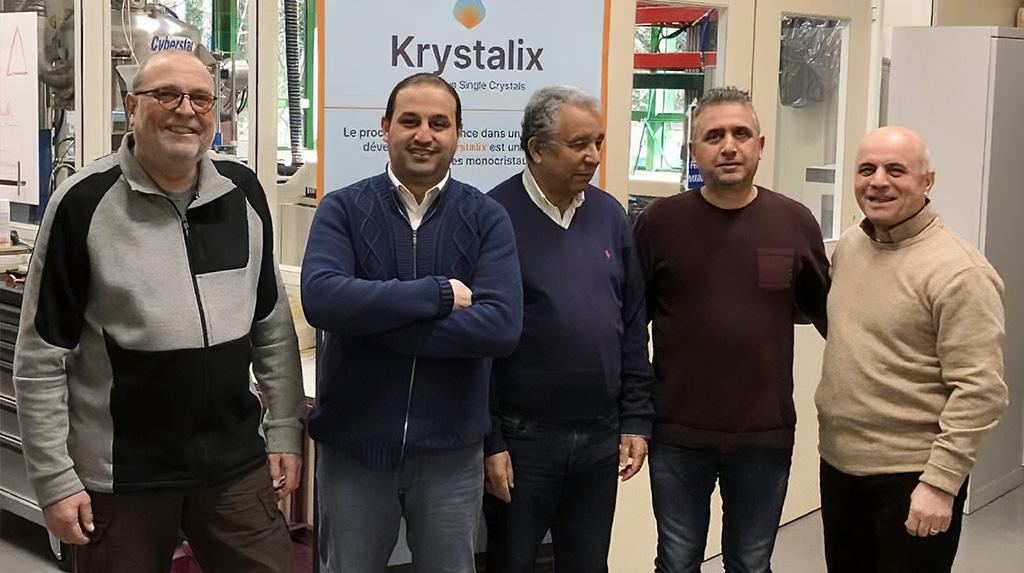krystalix on the single crystal market
Issue of December 6, 2023

On 1 January 2024, Krystalix, a SIMaP* start-up, will officially see the light of day. Incubated at SATT Linksium, it has already received €360,000 in funding from Bpifrance as part of the i-Lab 2023 competition. Its speciality: the production of single crystals for industry.
Single crystals have many applications in industry. Whether they are silicon, as in microelectronics, or other types of material suitable for laser applications or detectors, the principle of industrial production is always the same: the raw material is melted in a crucible. When it is in a liquid state, a monocrystalline 'seed' is immersed in it, allowing controlled solidification to take place, resulting in a monocrystalline structure in which all the atoms are perfectly in place. The virtual absence of defects in its structure gives the single crystal exceptional properties.
But this production method poses two problems: firstly, the melting point of the raw material cannot exceed that of the material making up the container. Secondly, the raw material runs the risk of being contaminated by residues from the crucible under the effect of the heat. This is why industrial crucibles are made of noble materials such as platinum or iridium, the cost of which has increased 5-fold in 2019.
Breakthrough innovation
To counter this exponential rise in prices, Kader Zaidat, a researcher at SIMaP and future CEO of Krystalix, and his team have developed a tool that works by induction. The crucible, through which electromagnetic fields pass, is made up of water-cooled metal fingers. "This makes it possible to heat materials to 3,000 degrees without the crucible temperature exceeding 50°C, explains the Grenoble INP - UGA researcher. As well as solving the problem of pollution caused by the material in the crucible, which no longer heats up, this process allows the material to be heated directly, resulting in a significant reduction in the overall energy consumption of the process"...
* CNRS / UGA / Grenoble INP – UGA

